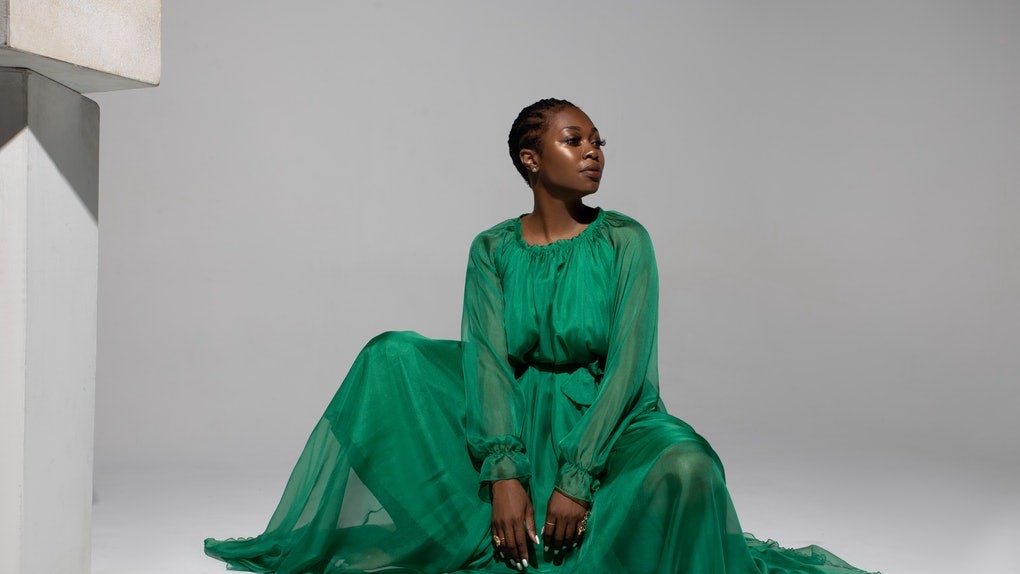Black Girl Sunscreen has been around since 2016, but because I’m always late to the party, I just discovered it last summer. I immediately fell in love with how it made my skin look and feel and made it my beach bag go-to. But Shontay Lundy wants Black girls to know that they should be wearing sunscreen every day, not just on beach days – something she admits, she didn’t always know herself. “Growing up, I didn’t know about sunscreen. My mother told us to put on baby oil and go outside to play. I was out there looking like a glazed donut with a super-shiny face,” she said.
Suggested Reading
In 2016, Lundy launched Black Girl Sunscreen, an SPF 30 lotion made with melanated mamas in mind. BGS stands out from other sunscreens marketed to the masses because it’s made with natural ingredients. And it doesn’t leave the white residue on the skin that turns many women of color away from sunscreen in the first place.
Today, Black Girl Sunscreen is sold at Target, Ulta and other major retailers. And Lundy has expanded her product offering to include Make It Matte, an SPF 45 sunscreen gel for the face, an SPF 50 lotion and sunscreen formulated for kids. We spoke with Lundy about why protecting your skin from the sun is so important, and how she got the courage to jump into a market she knew relatively nothing about.
A self-described woman of the sun, Lundy lives in Los Angeles, where the sun is practically everywhere. She says that although she loves spending time outdoors, she wasn’t always confident about her complexion. So she focused on avoiding the sun rather than protecting her skin from it. ”When my friends wanted to go out to a rooftop party, my first question was always, ‘Is there an umbrella?’ I wasn’t going to the barbecue if there wasn’t a tent,” she said.
When she started looking to protect her skin, Lundy scoured the internet for options. But she couldn’t find anything specific to women of color. She was sure there was a problem. And once she was convinced that she had the courage and the resources to leap into the market, she decided to do something about it.
With undergraduate and Master’s degrees in business and 13 years of corporate experience, Lundy leaned on her education, experience and drive to launch her product. “I’m a certified risk-taker,” she said. “It was always about stepping out of my comfort zone and realizing what I wanted to accomplish,” she said.
Lundy says creating a great sunscreen was about more than coming up with the right chemical formula. It was about understanding what would make her customers look and feel good. And for Black women, it was about eliminating the chalky white film left on their skin after application, which comes from zinc oxide. Lundy says before Black Girl Sunscreen, no other product addressed the issue. “We were one of the first to say that it’s actually not ok to look like a ghost,” Lundy said. “We said we were going to eliminate the ingredients that are bad for the skin and the environment, keep the good ones and add moisturizing ones like jojoba and cacao,” she said.
When it comes to the name of her product, Lundy says that although she made a conscious choice to lean into the fact that her product is made with Black women in mind, it has not come without consequences. “Some people are triggered by the name and want to know how dare we have that kind of pride,” she says. But Lundy makes no apologies and stands by her intentions. “I identify as a Black woman, and I felt good about it. I wanted the market to understand that this sunscreen was for women of color,” she said. “I wasn’t necessarily trying to exclude our lighter-skinned counterparts.”
Lundy is proud to be an industry leader and says she wants to continue to change the narrative about sun safety for people of color. She wants to make Black Girl Sunscreen products available to anyone who is open-minded and wants to protect their skin. But when asked about getting into cosmetics or other products, Lundy is cautious. “Right now, our core competency is in SPF, and it’s important for us to get it right. It’s important for us to understand [our customers] and execute on that rather than try to get into other types of products. We want to be known for SPF,” she said.
SPF is one of the ways to protect your skin from premature aging, hyperpigmentation and dark spots. But with so many products on the market, it’s hard to know which ones are right for you. We asked Shontay Lundy to break down everything you need to know about protecting your skin from the sun:
Broad-spectrum is the basis of sunscreen, which means it protects from UVA rays (which cause aging) and UVB rays (which cause burns). If your sunscreen has an SPF of 15, it’s probably some sort of makeup product and is not sufficient. SPF 30 will give you the coverage you need while you’re in the sun, protecting your skin from 97 percent of UVA and UVB rays. While you’re in the sun, you should reapply sunscreen with a minimum SPF of 30 every two hours.
Lundy says the difference in protection between an SPF 30 and a 50 is 0 .5 percent. But the average consumer doesn’t know that and looks for the higher number thinking they’re getting more coverage. She also notes that the FDA has not confirmed that any product claiming an SPF above 50 is giving you more protection. “Any product with an SPF 30 to 50 is more than enough,” she said
Straight From 
Sign up for our free daily newsletter.



